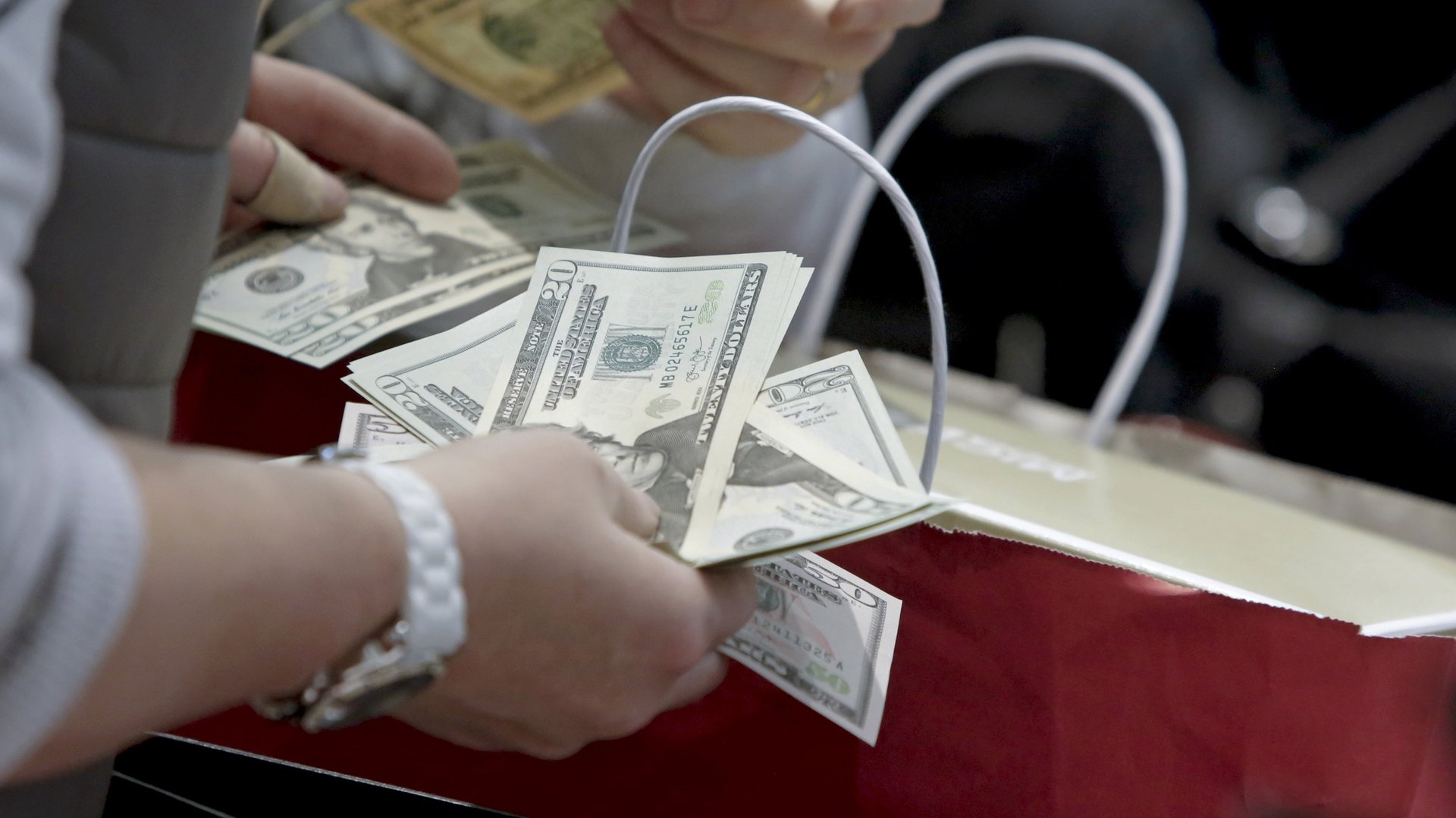Black Friday isn’t the shopping bonanza it used to be
The Black Friday shopping frenzy that takes place the day after Thanksgiving in the US is, at this point, as much a part of the holiday as turkey. The day is supposedly so named because that’s when retailers’ ledger books move from the red into the black—i.e. profitability—as a wave of shoppers hits stores to make their holiday purchases. (More on that later.)


The Black Friday shopping frenzy that takes place the day after Thanksgiving in the US is, at this point, as much a part of the holiday as turkey. The day is supposedly so named because that’s when retailers’ ledger books move from the red into the black—i.e. profitability—as a wave of shoppers hits stores to make their holiday purchases. (More on that later.)
But the Friday that gives Black Friday its name has recently lost some of its dominance in the shopping calendar, while the overall importance of holiday sales, though still tremendously valuable, has diminished some for retailers in the past few decades. The day’s significance at this point is a little more complicated than the Black Friday brand lets on.
For one thing, while Black Friday remains one of the busiest shopping days of the year, not everyone agrees that it’s the busiest day. ShopperTrak, which provides retailers with location-based analytics, including monitoring of foot traffic, predicts Black Friday will be the busiest shopping day of 2016. But RetailNext, a retail-technology firm, forecasts that Friday, Dec. 23, will be 2016’s biggest day of sales and Saturday, Dec. 17, will see the highest traffic in stores.
In addition, according to RetailNext, Black Friday was neither the top sales day nor the top traffic day of the holiday season last year either, when it fell on Friday, Nov. 27.
The importance of the day to retailers may even be somewhat manufactured. History.com explains that Philadelphia police originally coined the name “Black Friday” to describe the chaos that unruly suburbanites and tourists caused when they flooded into the city to shop on the Friday between Thanksgiving and the traditional Army-Navy football game on Saturday. It was rebranded in the 1980s as the year’s biggest day of sales, even if it didn’t always hold that title, and snowballed into today’s consumer bonanza.
Though Black Friday is still vital to retailers for marketing purposes, it’s role in actual holiday sales is shrinking. ”My view is that it has lost importance as consumers can shop for those specials during the month ahead of Thanksgiving Day and on Thanksgiving Day too,” says Michael Niemira of The Retail Economist. “Then add in the online options, it further diminishes the importance of the day itself.”
Shelley E. Kohan, vice president of retail consulting at RetailNext, says it began to lose its status as “a pinnacle event” two years ago, when the inexorable Christmas creep led stores to start their sales on Thanksgiving Day. ”That actually pilfered away traffic from Friday,” she says. It also ushered in the Black Friday “weekend event,” where Black Friday grew from one day to several.
“Two years ago Black Friday was a weekend,” she says. “A year ago it was a week long. This year, we actually saw Black Friday sales starting in late October.” Shoppers are less concerned with rushing out on the day itself as a result, and the endless discounts can make Black Friday less profitable overall for retailers if they’re not careful.
Holiday sales also make up a smaller share of US retailers’ annual revenue than they used to. The following US Census data compiled by Niemira shows US retailers’ combined November and December sales, including online and mail-order, as a percentage of their total sales. (For in-store sales alone, holiday sales’ overall share of the pie has been dwindling since 1983.)
So does Black Friday still deserve the name? It originally described a chaotic shopping day, and that hasn’t changed. Each year consumer hordes flood into stores, and shoppers may even fight each other to get their hands on the latest toy or a new TV.